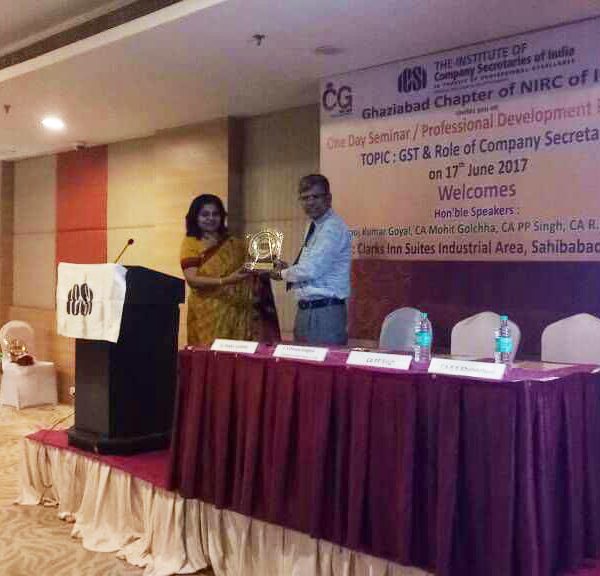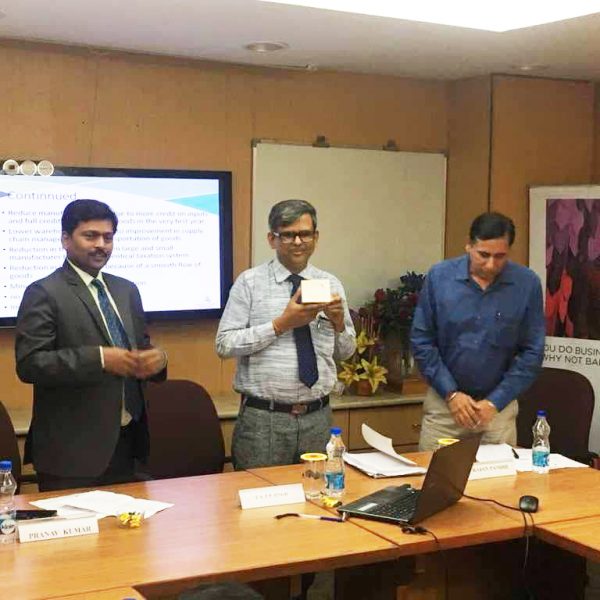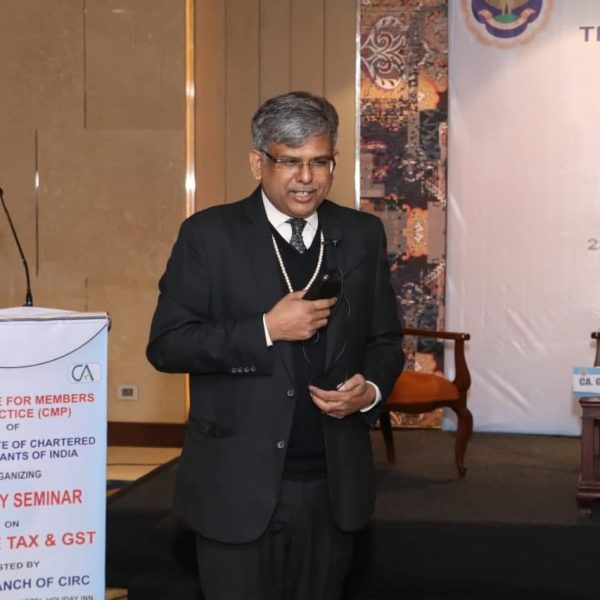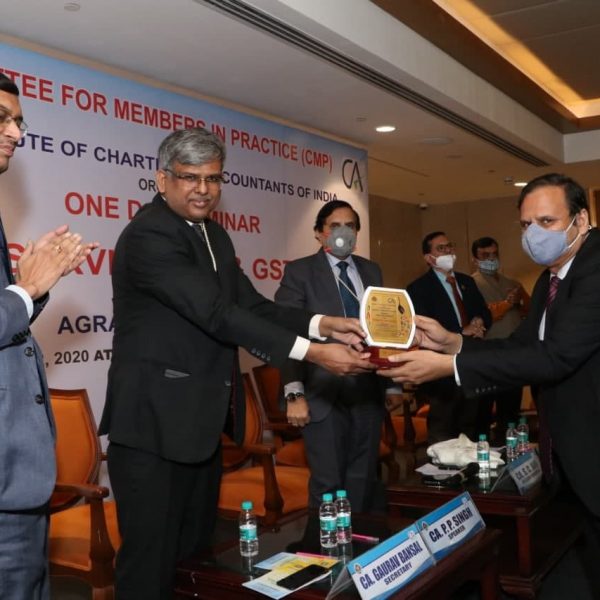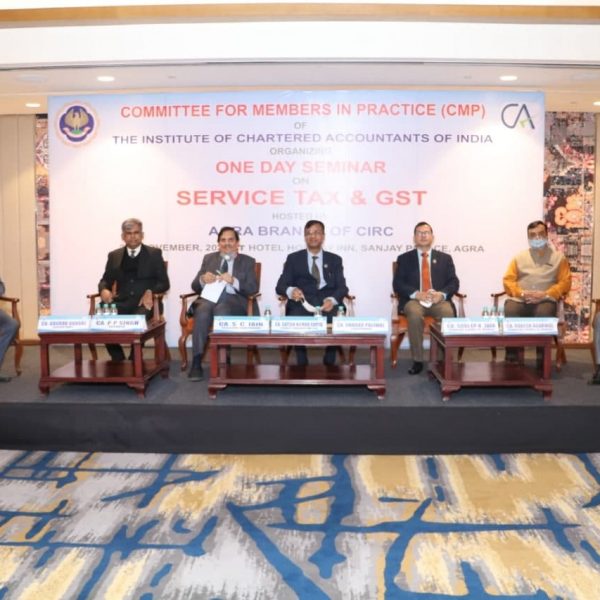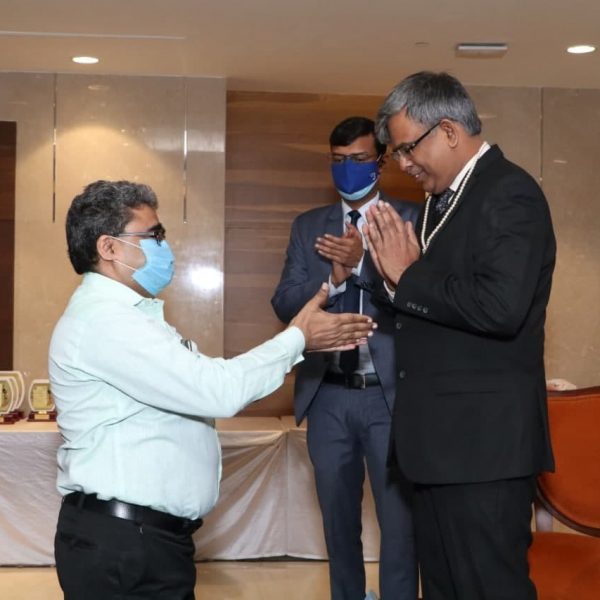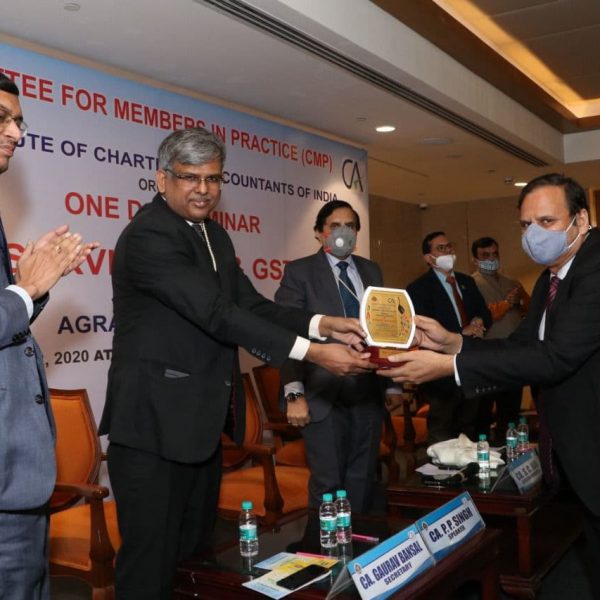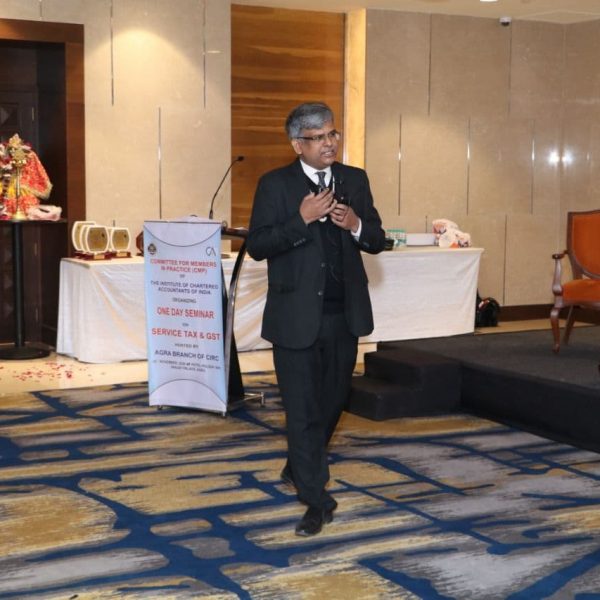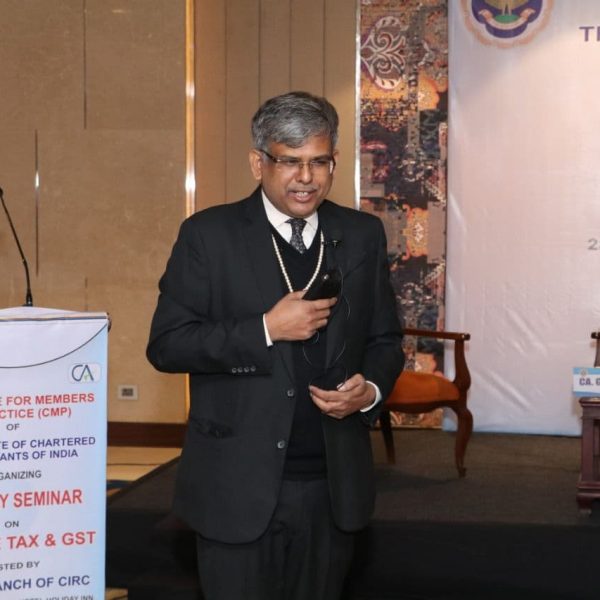Chapter XVII [Section 95 to 106]
Chapter XII Rule 103 to107A
Question for which advance ruling can be sought? On the following question the advance ruling can be sought under this Act shall be in respect of,—
-
- classification of any goods or services or both;
- applicability of a notification issued under the provisions of this Act;
- determination of time and value of supply of goods or services or both;
- admissibility of input tax credit of tax paid or deemed to have been paid;
- determination of the liability to pay tax on any goods or services or both;
- whether the applicant required to be registered?;
- whether any particular thing done by the applicant with respect to any goods or services or both amounts to or results in a supply of goods or services or both, within the meaning of that term.
( refer to section 97(2) of the CGST/SGST Act)
Application for advance ruling 97. (1) An applicant desirous of obtaining an advance ruling under this Chapter may make an application in such form ( Form No. GST ARA-01) and manner and accompanied by such fee (Fee: Rs 5000 CGST and Rs.5000 SGST prescribed in rule 104) as may be prescribed, stating the question on which the advance ruling is sought.
Rules 104 Form and manner of application and 107A.
Note: IGST’ of Rs. 10,000/- if the applicant provides OIDAR services
Online application on the common portal and 5 copies of the application to be prepared for filing to the registry of advance ruling authority.
Correspondence Address– Select the checkbox if it is the same as the registered address. If not, enter the complete address including the building number, name, floor number, road, and city, and select the state and district from the drop-down menu and enter the pin code.
- Details of Authorized Representative
- Nature of Activity in respect of which advance ruling is sought such as factory/warehouse/retail business/works contract/bonded warehouse/ISD/OIDAR etc.
- Issue/s on which advance ruling required – mentioned in section 97(2) discussed in the above paragraph.
- Specific Question(s) on the issue on which Advance Ruling is required
- Statement of relevant facts having a bearing on the question(s) raised
- Statement containing the applicant’s interpretation of law and/or facts, as the case may be, in respect of the aforesaid question(s) (i.e. applicant’s viewpoint and submissions on issues on which the advance ruling is sought).
Supporting documents such as copies of contract, agreement, nature of activity, etc
POA along with the application to be deposited with the registry of ARA.
Copy of challan for fee payment.
Copy of registration certificate if already registered.
Guide for Unregistered Persons to Seek Advance Rulings
A person who desires to obtain GST registration or understand the applicability of GST law may seek an advance ruling to avoid any future litigations.
There are broadly five steps as follows:
Step 1: Obtain a temporary ID on the GST portal as per our guide on ‘Generation of User ID’.
Step 2: Log in to the GST portal using the temporary ID obtained in Step 1.
Step 3: Create a challan to pay the advance ruling application fee as per our guide on ‘How to create challan?’ on the GST portal. Keep a note of the challan receipt and the CIN.
Step 4: Download and take a printout of the PDF template of the application (form ARA-01) by visiting the GST portal Homepage > Downloads > Offline Tools > ‘GST ARA 01 – Application for Advance Ruling’ to fill in the necessary details manually. Mention the temporary ID too.
Important attachments to advance ruling authority:
An advance ruling may be declared to be void if obtained by fraud, suppression of material facts, or misrepresentation of facts. [section 104]
- (1) Where the Authority or the Appellate Authority or the National Appellate Authority finds that advance ruling pronounced by it under sub-section (4) of section 98 or under sub-section (1) of section 101 or under section 101C has been obtained by the applicant or the appellant by fraud or suppression of material facts or misrepresentation of facts, it may, by order, declare such ruling to be void ab initio and thereupon all the provisions of this Act or the rules made thereunder shall apply to the applicant or the appellant as if such advance ruling had never been made:
Provided that no order shall be passed under this sub-section unless an opportunity of being heard has been given to the applicant or the appellant.
Explanation.—The period beginning with the date of such advance ruling and ending with the date of order under this sub-section shall be excluded while computing the period specified in sub-sections (2) and (10) of section 73 or sub-sections (2) and (10) of section 74.
(2) A copy of the order made under sub-section (1) shall be sent to the applicant, the concerned officer, and the jurisdictional officer.
Procedure on receipts of application by ARA section 98:
- (1) On receipt of an application, the Authority shall cause a copy thereof to be forwarded to the concerned officer and, if necessary, call upon him to furnish the relevant records:
Provided that where any records have been called for by the Authority in any case, such records shall, as soon as possible, be returned to the said concerned officer.
(2) The Authority may, after examining the application and the records called for and after hearing the applicant or his authorised representative and the concerned officer or his authorised representative, by order, either admit or reject the application:
Provided that the Authority shall not admit the application where the question raised in the application is already pending or decided in any proceedings in the case of an applicant under any of the provisions of this Act:
Principle of natural justice/ opportunity of being heard: Provided further that no application shall be rejected under this sub-section unless an opportunity of hearing has been given to the applicant:
Provided also that where the application is rejected, the reasons for such rejection shall be specified in the order.
(3) A copy of every order made under sub-section (2) shall be sent to the applicant and to the concerned officer.
(4) Where an application is admitted under sub-section (2), the Authority shall, after examining such further material as may be placed before it by the applicant or obtained by the Authority and after providing an opportunity of being heard to the applicant or his authorised representative as well as to the concerned officer or his authorised representative, pronounce its advance ruling on the question specified in the application.
If members of ARA differ reference is to be made to Appellate Authority (5) Where the members of the Authority differ on any question on which the advance ruling is sought, they shall state the point or points on which they differ and make a reference to the Appellate Authority for hearing and decision on such question.
(6) Time period for pronouncement of the ruling by ARA: The Authority shall pronounce its advance ruling in writing within 90 days from the date of receipt of the application.
(7) A copy of the advance ruling pronounced by the Authority duly signed by the members and certified in such manner as may be prescribed shall be sent to the applicant, the concerned officer, and the jurisdictional officer after such pronouncement.
Note: this facilitates for appeal before the appellate authority for Advance ruling.
Binding nature of ruling of ARA (Section 103) :(1) The advance ruling pronounced by the Authority or the Appellate Authority under this Chapter shall be binding only—
- on the applicant who had sought it in respect of any matter referred to in sub-section (2) of section 97 for advance ruling;
- on the concerned officer or the jurisdictional officer in respect of the applicant.
(1A) The advance ruling pronounced by the National Appellate Authority under this Chapter shall be binding on—
- the applicants, being distinct persons, who had sought the ruling under sub-section (1) of section 101B and all registered persons having the same Permanent Account Number issued under the Income-tax Act, 1961 (43 of 1961);
- the concerned officers and the jurisdictional officers in respect of the applicants referred to in clause (a) and the registered persons having the same Permanent Account Number issued under the Income-tax Act, 1961 (43 of 1961).]
Validity of ruling of ARA:
Section 103(2) The advance ruling referred to in sub-section (1) and sub-section (1A) shall be binding unless the law, facts, or circumstances supporting the original advance ruling have changed.
Appeal to Appellate Authority. [Section 100]
Who can prefer an appeal against the advance ruling?
- (1) The concerned officer, the jurisdictional officer, or an applicant aggrieved by any advance ruling pronounced under sub-section (4) of section 98, may appeal to the Appellate Authority.
The time limit for appeal:
(2) Every appeal under this section shall be filed within 30 days from the date on which the ruling sought to be appealed against is communicated to the concerned officer, the jurisdictional officer, and the applicant:
Condonation of delay by Appellate Authority.
Provided that the Appellate Authority may, if it is satisfied that the appellant was prevented by a sufficient cause from presenting the appeal within the said period of thirty days, allow it to be presented within a further period not exceeding thirty days.
Procedure for appeal:
(3) Every appeal under this section shall be in such form ( form ARA-02 by taxpayer /FORM GST ARA-03 by tax dept. ), accompanied by such fee ( CGST Rs 10,000, SGST Rs 10,000, IGST Rs.10000/-) and verified in such manner as may be prescribed.
Form and manner of appeal to the Appellate Authority for Advance Ruling
Rule 106. (1) An appeal against the advance ruling issued under sub-section (6) of section 98 shall be made by an applicant on the common portal in FORM GST ARA-02 and shall be accompanied by a fee of ten thousand rupees to be deposited in the manner specified in section 49.
(2) An appeal against the advance ruling issued under sub-section (6) of section 98 shall be made by the concerned officer or the jurisdictional officer referred to in section 100 on the common portal in FORM GST ARA-03 and no fee shall be payable by the said officer for filing the appeal.
(3) The appeal referred to in sub-rule (1) or sub-rule (2), the verification contained therein and all the relevant documents accompanying such appeal shall be signed,—
- in the case of the concerned officer or jurisdictional officer, by an officer authorized in writing by such officer; and
- in the case of an applicant, in the manner specified in rule 26.
Rectification of advance ruling.
- The Authority or the Appellate Authority or the National Appellate Authority may amend any order passed by it under section 98 or section 101 or section 101C, respectively, so as to rectify any error apparent on the face of the record, if such error is noticed by the Authority or the Appellate Authority or the National Appellate Authority on its own accord, or is brought to its notice by the concerned officer, the jurisdictional officer, the applicant,, appellant, the Authority or the Appellate Authority] within a period of six months from the date of the order:
Natural justice/opportunity of being hard: Provided that no rectification that has the effect of enhancing the tax liability or reducing the amount of admissible input tax credit shall be made unless the applicant or the appellant has been given an opportunity of being heard.
The time limit for rectification application is 6 months from the date of the order.
Who can apply for rectification? : concerned officer, the jurisdictional officer, the applicant,
Appeal to National Appellate Authority.
101B. (1) Where, in respect of the questions referred to in sub-section (2) of section 97, conflicting advance rulings are given by the Appellate Authorities of two or more States or Union territories or both under sub-section (1) or sub-section (3) of section 101, any officer authorised by the Commissioner or an applicant, being distinct person referred to in section 25 aggrieved by such advance ruling, may prefer an appeal to National Appellate Authority:
Provided that the officer shall be from the States in which such advance rulings have been given.
(2) Every appeal under this section shall be filed within a period of thirty days from the date on which the ruling sought to be appealed against is communicated to the applicants, concerned officers and jurisdictional officers:
Provided that the officer authorised by the Commissioner may file appeal within a period of ninety days from the date on which the ruling sought to be appealed against is communicated to the concerned officer or the jurisdictional officer:
Provided further that the National Appellate Authority may, if it is satisfied that the appellant was prevented by a sufficient cause from presenting the appeal within the said period of thirty days, or as the case may be, ninety days, allow such appeal to be presented within a further period not exceeding thirty days.
Explanation.––For removal of doubts, it is clarified that the period of thirty days or as the case may be, ninety days shall be counted from the date of communication of the last of the conflicting rulings sought to be appealed against.
(3) Every appeal under this section shall be in such form, accompanied by such fee and verified in such manner as may be prescribed.
Order of National Appellate Authority. Section 101C
(1) The National Appellate Authority may, after giving an opportunity of being heard to the applicant, the officer authorised by the Commissioner, all Principal Chief Commissioners, Chief Commissioners of Central tax and Chief Commissioner and Commissioner of State tax of all States and Chief Commissioner and Commissioner of Union territory tax of all Union territories, pass such order as it thinks fit, confirming or modifying the rulings appealed against.
(2) If the members of the National Appellate Authority differ in opinion on any point, it shall be decided according to the opinion of the majority.
(3) The order referred to in sub-section (1) shall be passed as far as possible within a period of 90 days from the date of filing of the appeal under section 101B.
(4) A copy of the advance ruling pronounced by the National Appellate Authority shall be duly signed by the Members and certified in such manner as may be prescribed and shall be sent to the applicant, the officer authorised by the Commissioner, the Board, the Chief Commissioner and Commissioner of State tax of all States and Chief Commissioner and Commissioner of Union territory tax of all Union territories and to the Authority or Appellate Authority, as the case may be, after such pronouncement.

